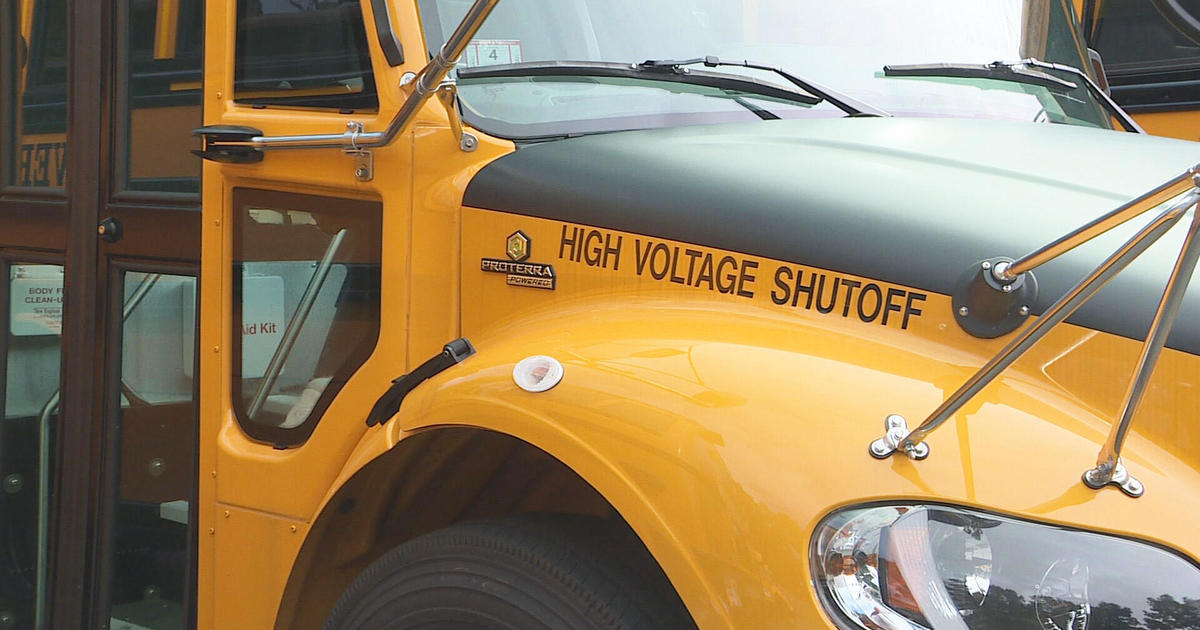Minn. Session Could See Raft Of Voter Amendments
ST. PAUL, Minn. (AP) — The Republican takeover of the Minnesota Legislature in 2010 has consequences for the 2012 ballot, as eager conservatives look to bypass Gov. Mark Dayton's veto pen and bring some of their policy goals directly to voters.
In last year's legislative session, Republicans set a statewide vote for later this year on whether to ban same-sex marriage in the state's Constitution. But it's likely not to be the only question on the November ballot.
Members of the Republican majority are weighing several more right-leaning constitutional amendments, meaning citizens may get to weigh on whether voting in Minnesota should require a photo ID; whether it should require a three-fifths or two-thirds "supermajority" of state lawmakers to approve a tax increase; whether to make membership in labor unions voluntary; and maybe others.
"We have these conservative majorities in the House and Senate at the same time, and that has not existed for 39 years," said Rep. Steve Drazkowski, R-Mazeppa, who's pushing both the supermajority and the so-called "right to work" amendments. "So these are proposals where there hasn't been an opportunity to place them in front of Minnesotans for a very long time."
The Republican rush to the ballot has drawn the ire of Dayton and legislative Democrats. Dayton can't block lawmakers from putting proposed amendments on the ballot, and he's been scathing as he considers the prospect of a November ballot packed with conservative aims.
"My concern about constitutional amendments except in very, very rare circumstances is that the design of our government is to have the legislative branch work in consultation and cooperation with the executive branch. There has to be a collaboration there, an agreement," Dayton said.
He predicted that amendments linked to GOP policy goals would inspire "multimillion-dollar advertising campaigns that mischaracterize it on both sides and are socially divisive."
Rep. Ryan Winkler, DFL-St. Louis Park, says if Republicans succeed, they could see future Democratic legislative majorities responding with their own amendments tied to liberal goals.
"I don't think it would be very tough to get a majority of Minnesota voters to support an amendment that imposes a higher income tax rate on wealthy earners in the Constitution forever," Winkler said. "That's the precedent Republicans set if they don't exercise some restraint, that the Constitution itself becomes just another venue for partisan politics."
House Speaker Kurt Zellers expressed his own worry about "legislating through the Constitution." But Zellers supports the supermajority amendment, and said he can't stop any amendment from going forward if its supporters have the votes.
Zellers and Senate Majority Leader Dave Senjem have called the voting photo ID requirement a near certainty. Republicans passed a bill last year to add the requirement to state law, but Dayton vetoed it. Some people speculated that sponsors would work with Dayton this year to approve it through the legislative process, but chief House sponsor Rep. Mary Kiffmeyer said last week she is more inclined to simply send it to the ballot.
"Do we want to go through that process again, given we know where it's probably going to end up?" said Kiffmeyer, R-Big Lake.
The supermajority and the right-to-work amendments appear less definite, but both have strong backers in the House and Senate. At the same time, even supporters know that setting statewide votes on divisive political issues will stir activism from political opponents.
"Obviously, the long knives are going to come out," said Sen. Dave Thompson, R-Lakeville. Thompson acknowledged his push to get the union membership amendment on the ballot would probably motivate state unions to pour even more resources than usual into fundraising and get-out-the-vote efforts.
The supermajority proposal on taxes is opposed by local government officials. They hope to convince Republican legislators that it would put a greater pinch than ever on state finances and local property taxpayers.
Alan Oberloh, mayor of Worthington and president of the Coalition of Greater Minnesota Cities, said it's particularly unfair that a simple majority of lawmakers could put the question on the ballot, and a simple majority of voters could approve a requirement that tax increases would require more than a majority to pass.
"It would make bad problems worse," Oberloh said.
With the definition-of-marriage amendment already on the ballot, Republican legislative leaders have declined to predict which of the other issues are likely to join it — though the photo ID for voting amendment looks close to certain. Putting three or four amendments before voters in November would be the most in a while. There were three amendments on the 1998 ballot; the last time a Minnesota ballot saw four amendments was 1982. In both cases, all the amendments passed.
Throughout the state's history, constitutional amendments have been more likely to pass than not. Of the 211 amendments since 1858, voters approved 119 and defeated 92.
Despite the 1998 and 1982 examples, there have been cases where multiple amendments on one ballot all went down. The 1914 ballot saw nine amendments that all failed; in 1952, voters defeated five amendments.
Kiffmeyer, a former Minnesota secretary of state, said she's not worried that a handful of constitutional amendments would hurt their individual chances to pass.
"I think voters overall take their job more seriously than we give them credit for," Kiffmeyer said.
(© Copyright 2012 The Associated Press. All Rights Reserved. This material may not be published, broadcast, rewritten or redistributed.)



